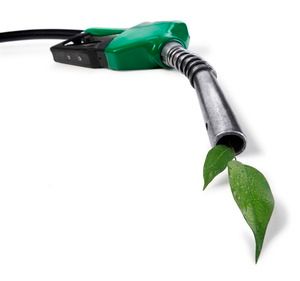USDA celebrates Earth Day by awarding $43 million in HBIIP grants

April 23, 2024
BY Erin Voegele
The USDA on April 23 awarded more than $43 million in grants through the Higher Blends Infrastructure Incentive Program to support projects that will increase the availability of domestic biofuels in 15 states.
According to the USDA, the $43 million will support 57 projects in California, Florida, Illinois, Iowa, Kansas, Kentucky, Michigan, Minnesota, Missouri, New York, Oklahoma, Pennsylvania, South Dakota, Texas and Wisconsin. Individual awards range from as low as $40,114 to as high as $5 million.
Advertisement
The USDA awarded the $43 million in HBIIP grants as part of a larger $238 million funding announcement that also included more than $194 million in loans and grants that were awarded through the agency’s Rural Energy for America Program.
“The Biden-Harris Administration and USDA are committed to expanding access to modern clean energy systems and fueling options that strengthen the nation’s energy independence while creating good-paying jobs and saving people money,” said Agriculture Deputy Secretary Xochitl Torres Small. “As we celebrate Earth Day this year, we are excited to partner with hundreds more family farms and small businesses to address the impacts of climate change, grow the economy and keep rural communities throughout the country strong and resilient.”
HBIIP provides grants to fueling station and distribution facility owners, including marine, rail, and home heating oil facilities, to help expand access to domestic biofuels, including ethanol and biodiesel. These investments help business owners install and upgrade infrastructure such as fuel pumps, dispensers and storage tanks.
Advertisement
Since the start of the Biden-Harris Administration, USDA has invested approximately $135 million to increase access to biofuels at fueling stations. In June 2023, USDA made $450 million available in Inflation Reduction Act funding through the HBIIP to expand the use and availability of higher-blend biofuels.
USDA continues to accept applications for funding to expand access to domestic biofuels. These grants will support the infrastructure needed to reduce out-of-pocket costs for transportation fueling and distribution facilities to install and upgrade biofuel-related infrastructure such as pumps, dispensers and storage tanks. Applications are being accepted quarterly through Sept. 30, 2024.
A full list the $43 million in HBIIP awards made April 23 is available on the USDA’s website.
Related Stories
The U.S. EPA on Sept. 18 released data showing 1.79 million RINs were generated under the RFS in August, down from 2.16 billion generated during the same month of 2024. Total RIN generation for the first eight months of 2025 reached 15.1 billion
The U.S. EPA on Sept. 18 published updated small refinery exemption (SRE) data, reporting that 10 new SRE petitions have been filed under the Renewable Fuel Standard in the past month. A total of 23 SRE petitions are currently pending.
The EU on Sept. 17 announced it will allocate approximately €100 million ($117.88 million) of EU Emissions Trading Systems emissions allowances to 53 aircraft operators to help offset costs of SAF used in 2024.
EFT licensee Highbury Energy Inc. and WBCEC are advancing a CAD$210M Indigenous-led biomass-to-fuels project in Fort Frances, Ontario. The facility will use woody biomass to produce SAF and renewable diesel.
The government of Australia on Sept. 17 announced plans to invest AU$1.1 billion ($731.84 million) to support the domestic production of drop-in, low-carbon liquid fuels, such as renewable diesel and sustainable aviation fuel (SAF).
Upcoming Events










